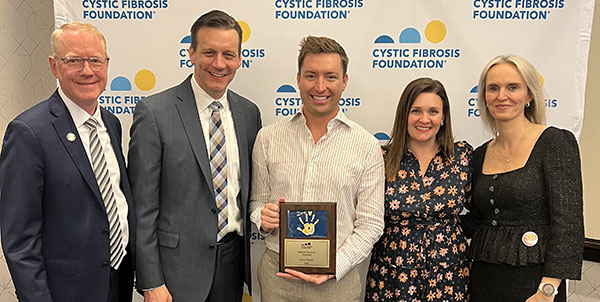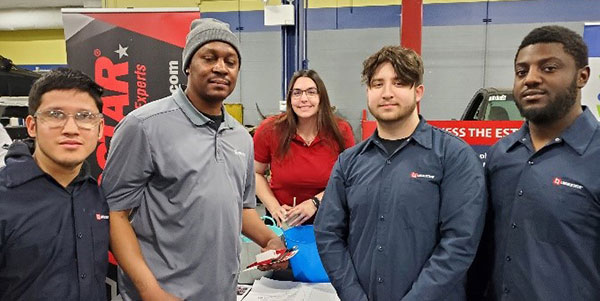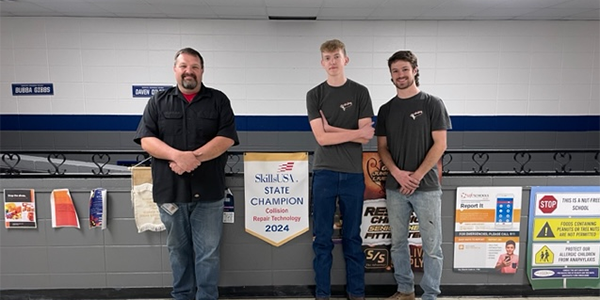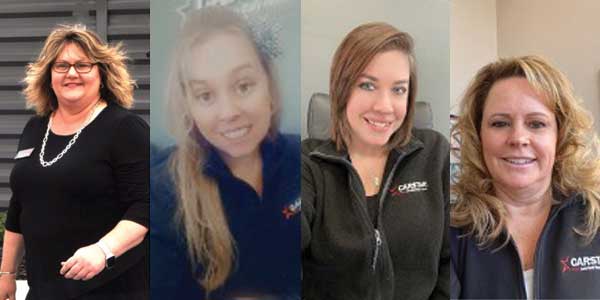Mike Schoonover is done running employment ads. Ever since he attended a 2016 career fair on 3M’s corporate campus in St. Paul, Minn. – where he made one connection that led to two full-time hires for his shop – Schoonover has had a change of heart about his recruitment approach.
Schoonover, the third-generation owner of Schoonover Bodyworks & Glass in Shoreview, Minn., believes that making personal connections with potential hires – whether at a job fair or through word-of-mouth – is the key to keeping his talent pipeline flowing with quality candidates.
“It’s not a matter of how many contacts you make,” Schoonover says. “You just need to make the right one.”
That’s become increasingly difficult to do through online employment ads, Schoonover has found. While internet ads might generate a lot of applicants, many of those applicants lack the skills, training and patience needed to develop into competent techs, he says.
When Schoonover went to the Collision Repair Education Foundation (CREF) “Cars, Careers and Celebrities” career fair in St. Paul, he wasn’t expecting to find a new hire on the spot. He had hoped to share his knowledge from more than 30 years in the auto body profession, and figured he could talk to students about the opportunities in the industry and what it’s like to work at an independent repair facility.
Throughout the course of the day, though, Schoonover clicked with several students. Chris Zumach was one of them.
Zumach, then a student at Hennepin Technical College, left the job fair with Schoonover’s business card, and called a few weeks later asking to tour the shop. That led to a four-month internship. After Zumach graduated, Schoonover hired him full-time as an apprentice painter.
The story gets better, though. Zumach later introduced Schoonover to a classmate who wasn’t happy in his job at a dealer body shop. After meeting with Zumach’s friend and explaining what he could earn at his shop, Schoonover hired him as an apprentice body technician.
Based on the experience, Schoonover is convinced that making personal connections is the key to finding good people.
Says Schoonover: “I’ll never run another ad for somebody again.”
Perfect Storm
Schoonover Bodyworks is “crammed” into a 14,000-square-foot facility in a Minneapolis/St. Paul suburb, and business is good. Schoonover maintains a lean staff – 16 people, including Schoonover and his wife – so there’s plenty of work for everybody. But he keeps a close eye on his volume to make sure he has enough staffing in place.
In recent years, Schoonover says he’s been worried about how he can grow his workforce – especially in light of his frustration with employment ads – or even replace his current techs. Schoonover has a number of techs who’ve been at the shop for more than 20 years, and some of them have been talking about “getting of the business” because their bodies are worn down. (Industrywide, the average age of production personnel, according to the Body-Shop Business 2017 Industry Profile, is 42; CREF’s latest Snapshot survey puts it at 41.)
“We’ve been evaluating this for quite some time and realizing that we potentially have a problem if one of my technicians leaves or gets hurt or gets sick,” Schoonover says. “If something happened, we would be in dire straits.”
Schoonover isn’t alone. The skilled-technician shortage “is probably the greatest challenge that faces our members and the industry today,” according to Aaron Schulenburg, executive director of the Society of Collision Repair Specialists (SCRS).
“I have the opportunity to interview all of our new members as they join the association, and one of my questions – aside from what made them join – is, ‘What’s one of the greatest challenges you’re facing?’” Schulenburg explains. “And the resounding answer more than 90 percent of the time is, ‘I can’t find the skilled people to do the jobs that I need to get done.’ That’s a challenge for the industry, and it’s a focal point for our association.”
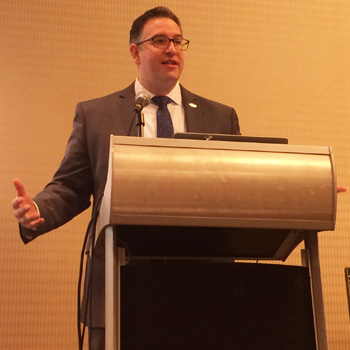
Adding to the challenge, recent data from the nonprofit TechForce Foundation indicates that the U.S. Bureau of Labor Statistics (BLS) has been underestimating the demand for new auto body technicians. According to a TechForce Foundation analysis of BLS employment data, the collision repair industry will need an average of 17,200 new techs per year between 2016 and 2026 – compared to the previous BLS projection of 4,810 new techs. (The foundation emphasizes that the numbers don’t include techs who move from shop to shop.)
Greg Settle, director of national initiatives for TechForce, calls the technician shortage a “perfect storm,” fueled by a growing economy (which means more cars on the road and more miles driven); pent-up demand for technicians; and the complexity of new vehicles.
There are longer-term trends at play too.
“Part of the problem is that for some time now, we as a nation, as a culture, have had a societal bias against the trades,” asserts Tony Molla, vice president of the Automotive Service Association. “We tend to push our kids toward college. Whether that’s good or not is immaterial. But we have neglected the basic training, if you want to think of it that way, at the high school level in what we used to call shop class, because it’s cheaper and easier to outfit a computer lab than it is to set up a new auto shop – especially with the equipment that you need nowadays.”
Still, even in the midst of what some call a perfect storm, Molla has found that there isn’t a consensus on whether or not the industry is facing a technician shortage.
“Everyone seems to agree that if there is a shortage, it’s a shortage of qualified people,” Molla says. “There are enough warm bodies to go around. But these days, even putting the wrong motor oil in a modern vehicle can cause a ‘Check Engine’ light to come on.”
Soft Skills
SCRS, like other trade groups, is doing what it can to connect body shops with job seekers. Last fall, the association launched an online career board, and SCRS will continue to look for more ways to promote job opportunities and bring more potential candidates into the fold, according to Schulenburg.
But as important as those initiatives are, Schulenburg says the industry also needs to focus on growing its own talent – as opposed to holding out for the elusive “A” tech.
“As businesses, we have to do a much better job of hiring young people and building the skills internally to fill the positions that we need, because constantly looking for that experienced technician isn’t doing anything to grow the base,” Schulenburg says.
Shops that are mastering the challenge “are ones that really embrace that idea of growing internally, of taking a risk on younger, maybe less experienced individuals who just demonstrate the general aptitudes that are necessary for the positions, and creating programs that develop them within their own business,” Schulenburg adds.
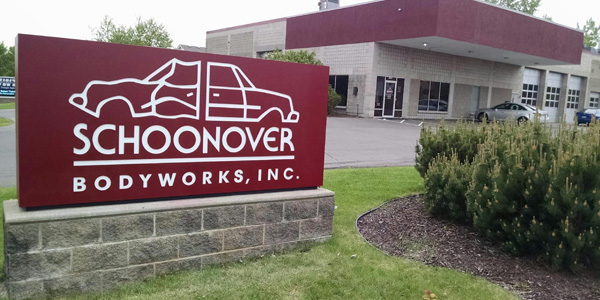
Schoonover is hopeful that the homegrown approach will be a viable path for his shop. His two new hires are working alongside experienced techs to learn their respective trades, and Schoonover isn’t rushing them. The goal is for the young apprentices to learn to do their jobs the right way.
When it comes to finding good help, Schoonover has learned that soft skills – personal characteristics such as honesty, patience and punctuality – are just as important as technical skills.
“Technical skills can be taught,” he says. “The person is the most important thing.”
That’s a big reason why the Collision Repair Education Foundation has opened its career fairs to students from mechanical repair programs, including students who focus on heavy-duty and diesel repair.
“What we’re hearing from companies is the need is so dire that they don’t care if the student is collision-focused or mechanical-focused,” explains Brandon Eckenrode, director of development for the foundation. “They’re looking for someone who’s hardworking, shows up to work every day and stays off their phone. So we’ve opened up the events to a bigger pool of students.”
‘Our Goal Is to Create Loyalty’
Independent shops aren’t the only ones that favor the grow-your-own approach to developing talent.
“By far, the most success we have is growing our own,” says Joe Carubba, owner and CEO of Carubba Collision, a 20-location MSO in Western New York. “It takes years to develop the talent to be able to take a train wreck and put it back together. But if you have the right culture – which I think we do – and if you have people helping each other, you can take somebody who’s a little less skilled and give them a job, as long as they have an ‘A’ tech working next to them to show them the way.”

Service King has gone all-in on the homegrown approach. In 2015, the company assembled a team of operational leaders, body techs and others to come up with a plan to address the technician shortage. The end result was its Apprentice Development Program.
“We identified what we believe students coming out of trade schools need in order to become standalone technicians who can work with little to no supervision,” explains Tyra Bremer, Service King vice president of talent development. “And we identified what the timeframe looks like to give them not only the skills but also the confidence and the competence to complete quality, safe repairs.”
The team developed a 52-week paid training course in which apprentice body technicians work side-by-side with an experienced supervisor at a Service King facility. Typically, there’s one supervisor for every four apprentices, according to Bremer. Supervisors are “proven master technicians” who participate in a train-the-trainer workshop at Service King’s Richardson, Texas, corporate office before becoming mentors.
Although the apprentice training includes some I-CAR requirements, Bremer describes it as a “custom creative curriculum.” To complete the program, apprentice techs must pass a number of demonstration and knowledge tests along the way.
When they complete the program, graduates receive a $6,000 toolset and a job offer at a Service King store. Graduates aren’t required to sign an employment contract, according to Bremer, but they can’t keep their tools if they don’t stay at the company longer than two years.
“Our goal, ultimately, is to create loyalty,” Bremer says. “That’s why we’re investing in their education, and we’re investing in them feeling successful and feeling like they’re a part of the Service King family.” Since launching its Apprentice Development Program in 2015, the company has recruited and trained 125 apprentice technicians for full-time positions at Service King facilities. An added benefit, Bremer says, is that the program has created “an additional career path” for the company’s veteran technicians.
“Some of them were at a point in their career where maybe they just couldn’t physically perform the amount of repair work that they used to, but they still had that drive, that desire in their heart,” Bremer says. “When this opportunity became available to teach others, it was phenomenal. It gave them an opportunity to stay in the industry and pass on that passion.”
Bremer is well-aware of the fact that poaching is rampant in the collision repair industry. In 2016, according to industrywide data from CREF, nearly 50 percent of newly hired techs came from another shop. Although that number was down from 61 percent in 2013, it still is the collision industry’s largest source of technician hiring.
Bremer says the company sees its Apprentice Development Program as one way to break the cycle.
“If we just stop taking from each other and work on developing our own, it’s going to take the industry to a whole new level,” Bremer says. “And that’s really where we want to come in. We want to make a difference.”
Finding Homegrown Talent
When Service King developed its apprenticeship program in 2015, a key goal was to build relationships with more trade schools. The program has accomplished that so far, Bremer says. The company even tweaked its class start dates to sync with schools’ semester calendars.
In 2015, Service King had a “limited” presence at trade schools. Today, Bremer says, “they’re calling us.”
“I’m so excited to think about the relationships that the Service King teammates have built with the schools that now trust our program because it’s getting their students into jobs,” she adds.
Trade schools aren’t the only source of entry-level talent, of course. According to CREF’s 2016 Snapshot of the Collision Repair Industry, 45 percent of body shops said asking vendors is their most effective recruitment strategy, while 38 percent pointed to trade schools. Online employment ads ranked third at just under 38 percent, followed by social media (22 percent), newspaper ads (19 percent) and trade associations (11 percent).
In his 42 years in the collision repair business, Kye Yeung, owner of European Motor Car Works in Southern California, has learned to leave no stone unturned when looking for good help.
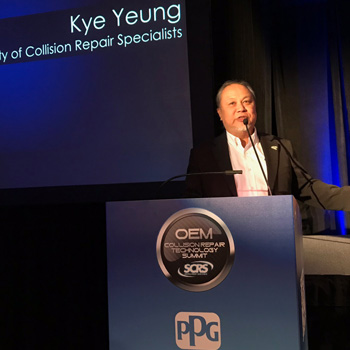
In addition to mining the traditional channels for entry-level talent – Yeung has had some luck hiring his employees’ relatives – Yeung tries to think “outside the box.” In some cases, that means giving someone a second chance.
His head painter, for example, is a former “gangbanger” who lied about his checkered past when he first applied for a job at Yeung’s shop more than 10 years ago. The jig was up when Yeung’s then-new hire told him that he had a weekly meeting with his parole officer. Yeung stuck with him, though, and “look where he’s at now.”
While Yeung knows it’s not the solution for some shops, he says it’s “heartwarming” when you give someone a second chance and it pans out.
“You might have to try 100 times to get a star,” Yeung says. “But if you don’t give it that try, and you don’t give them that opportunity, you’ll never get that star.”
Regardless of where he finds entry-level techs, Yeung has learned several key lessons about onboarding them the right way. For one thing, he makes sure that they’re apprenticing with a seasoned tech from the get-go; gone are the days of new hires doing nothing but sweeping the floors for their first month. And he’s become more selective when choosing mentors, knowing that some techs aren’t comfortable in the role of a trainer.
Perhaps most importantly, Yeung tries to put himself in the shoes of the new employee, remembering his own humble beginnings in the business, when “I didn’t know what the heck I was doing.”
Yeung adds: “The key component is having the patience to nurture any new prospects so they stay interested and engaged.”
How Franchisors Support Their Stores’ Hiring Efforts
Because of state and federal regulations that govern franchise agreements, collision repair franchisors such as CARSTAR and Fix Auto can’t make hiring decisions for their local franchisees. But they’ve found other ways to support their stores’ recruitment efforts.
CARSTAR, for example, keeps its stores apprised of upcoming Collision Repair Education Foundation (CREF) career fairs via its weekly e-newsletter. The company also encourages its shops to get involved and build relationships with their local technical schools.
Last summer, CARSTAR’s Colorado Business Group signed a two-year agreement with the Lincoln College of Technology in Denver to support the school’s efforts to attract more students and to help groom the next generation of technicians for CARSTAR’s Colorado shops. Through the partnership, CARSTAR is providing office supplies for students, and CARSTAR’s logo and branding appear in a collision repair classroom and hallway as well as in the school’s refinish areas and body shop. Colorado CARSTAR shops also have participated in job fairs at the school.
“It’s a cool example of a way to connect the CARSTAR brand with young talent, and a great way for our stores to get out in their communities, build some brand awareness and support the local schools,” says Hannah Ross, director of marketing for CARSTAR North America.
Fix Auto USA has developed several resources to help its network of more than 125 independently owned and operated body shops find valuable and talented employees.
A “Careers” webpage on the Fix Auto USA site highlights the brand’s values and culture. The page also profiles different employees, provides a high-level benefits overview (which vary from shop to shop) and touts the brand’s commitment to diversity, safety, quality, professionalism and community involvement.
To help individual shops articulate their value proposition to prospective employees, Fix Auto USA created a document called “Why Work for Fix Auto?” that is unique to each location. Fix Auto emphasizes that its local shop owners care about their employees and customers, welcome their employees’ process-improvement ideas and empower their employees to grow professionally.
“Our owners are passionate and actively engaged in their businesses,” Fix Auto USA President and CEO Paul Gange says. “Having the owner active in the store on a day-to-day basis is a big selling point for prospective employees.”
Fix Auto USA also developed a job-posting guide, which provides tips for creating and posting job ads, and highlights other recruitment best practices.
“Between our ‘Careers’ page, the ‘Why Work for Fix Auto?’ document and our job-posting guide, we feel that we enable our shops to go out locally and deploy those resources not only to attract new employees, but also to close the sale, so to speak,” Gange adds.
In addition to the aforementioned resources, Fix Auto has played a key role in launching the Collision Career Institute, and provides support to organizations such as CREF, Universal Technical Institute and other tech schools.
Fix Auto and CARSTAR see their respective brand names as another tool that their shops can leverage to find skilled talent.
Says Dean Fisher, COO of CARSTAR North America: “I think there’s potentially a much stronger ability for a store to recruit under a CARSTAR banner than there is under an independent banner, unless [the independent shop] has built a very strong brand in the marketplace.”
Upcoming CREF Transportation Career Fairs
The Collision Repair Education Foundation (CREF), the TechForce Foundation and S/P2 are casting a wider net for talent with their upcoming career fairs.
The organizations are expanding the career fairs to include “transportation students” – anyone enrolled in programs for collision, mechanical, heavy-duty or diesel repair/service.
CREF expects an average of more than 400 students at each event. Here’s the schedule, as of Feb. 6:
- Feb. 16 – Miami, Robert Morgan Education Center & Technical College
- March 1 – San Antonio, Judson High School
- March 16 – Los Angeles, SEMA headquarters office
- April 6 – Chicago, Tech-Cor
- April 7 – Phoenix, LKQ
- April 12 – Denver, location to be determined
- April 18-19 – Greensboro, N.C., North Carolina SkillsUSA State Competition
- April 24 – Atlanta, Maxwell Technical High School
- April 26 – Boston, Assabet Valley Technical High School Dates and locations TBD – Dallas, Houston, Nashville
Companies interested in participating in one or multiple career-fair events can contact CREF Director of Development Brandon Eckenrode at [email protected] or (847) 463-5244.











